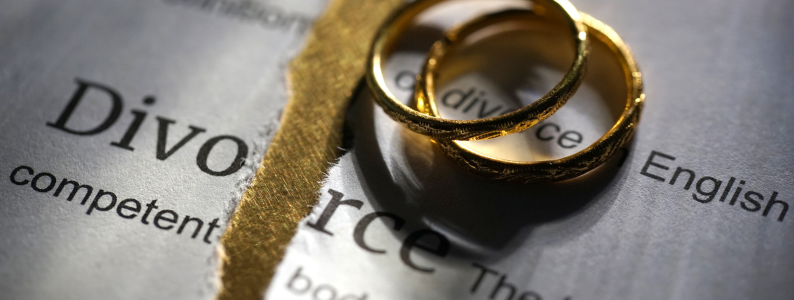Litigation vs. Mediation: What’s the Difference?
When a legal dispute arises, one of the most important decisions you will face is how to resolve it. Should the matter proceed through formal court litigation, or should you attempt mediation outside of the courtroom?
Both litigation and mediation are legitimate and effective dispute resolution tools. However, they differ significantly in structure, decision-making authority, privacy, strategy, and overall approach. Choosing the right path can influence not only the outcome of your case but also your long-term personal, financial, or professional stability.
At Masters Law Group, we guide clients through this decision with clarity and purpose. Below, we explain the fundamental differences between litigation and mediation and when each may be appropriate.
What Is Litigation?
Litigation is the formal legal process of resolving disputes through the court system. One party files a lawsuit, and the case proceeds under established rules of civil procedure and evidence. The process may involve motions, hearings, discovery (the exchange of information), and ultimately a trial.
At the conclusion of litigation, a judge, and in some cases a jury, issues a binding decision.
Key Characteristics of Litigation:
- Governed by formal court procedures
- Structured by statutory and evidentiary rules
- Public court records, in most instances
- The judge (or jury) makes the final decision
- Legally binding and enforceable outcome
- Court-supervised process
Litigation is designed to provide a definitive resolution when parties cannot reach an agreement or when court authority is necessary to protect legal rights.
What Is Mediation?
Mediation is a structured negotiation process facilitated by a neutral third party known as a mediator. Unlike a judge, a mediator does not decide the outcome. Instead, the mediator guides discussion, encourages productive dialogue, and helps the parties explore potential resolutions.
The authority to resolve the dispute remains entirely with the parties themselves.
Key Characteristics of Mediation:
- Private and confidential
- Facilitated negotiation
- Flexible discussion format
- Parties retain decision-making authority
- Collaborative problem-solving
- Binding only if an agreement is reached and formalized
Mediation centers on communication and mutual agreement rather than judicial determination.
The Core Differences
Understanding how litigation and mediation differ across critical dimensions can help you make an informed decision aligned with your objectives.
1. Decision-Making Authority
Litigation: In litigation, control ultimately rests with the court. After hearing evidence and legal arguments, the judge (or jury) determines the outcome. Once issued, that decision is enforceable by law.
Mediation: In mediation, the parties control the outcome. No resolution occurs unless both sides voluntarily agree. If no agreement is reached, the dispute may still proceed to court.
For some clients, retaining control over the outcome is a significant advantage. For others, having a judge issue a definitive ruling provides clarity and closure.
2. Structure and Formality
Litigation: Litigation is governed by strict procedural and evidentiary rules. Filings must comply with court requirements. Evidence is presented according to established legal standards. The process is highly structured.
Mediation: Mediation is more flexible. While it follows an organized framework, discussions are not bound by formal courtroom rules. The setting is generally more conversational and solution-oriented.
The structured nature of litigation can provide predictability and procedural safeguards. The flexibility of mediation can allow for creative problem-solving.
3. Privacy and Public Record
Litigation: Court proceedings and filings are generally matters of public record. Hearings and trials are often open to the public unless sealed by court order.
Mediation: Mediation is confidential. Statements made during mediation typically cannot be used later in court. This confidentiality encourages open dialogue and candid negotiation.
For individuals and businesses concerned about privacy, this distinction may carry significant weight.
4. Nature of the Process: Adversarial vs. Collaborative
Litigation: Litigation is inherently adversarial. Each side presents arguments and evidence to persuade the court. The process is structured around advocacy and legal positioning.
Mediation: Mediation is collaborative. The goal is not to “win,” but to reach a mutually acceptable resolution. While legal positions remain important, the focus shifts toward problem-solving.
The tone and approach of each process can influence relationships, particularly in disputes involving family members, business partners, or co-parents.
When Litigation May Be Necessary
While mediation offers many benefits, litigation plays a vital role in the legal system and is often essential in certain circumstances.
- High-Conflict Disputes: When communication has broken down entirely or when one party refuses to engage in meaningful negotiation, court intervention may be required to move the matter forward.
- Power Imbalances: If one party holds significantly greater financial, informational, or emotional leverage, judicial oversight can provide protection and help ensure fairness.
- Need for Immediate Court Orders: In matters involving protective orders, injunctions, or emergency relief, only a court has the authority to issue enforceable directives.
- Complex Legal Issues: Some disputes hinge on statutory interpretation, contractual enforcement, or legal precedent. In these cases, a judicial ruling may be necessary to clarify rights and obligations.
At Masters Law Group, we evaluate whether litigation is strategically necessary to help protect your interests and achieve a durable resolution.
When Mediation May Be Appropriate
Mediation can be particularly effective under the right circumstances.
- Willingness to Negotiate: If both parties are open to dialogue and motivated to find common ground, mediation provides a structured forum to reach an agreement.
- Ongoing Relationships: In family law matters, business partnerships, or co-parenting arrangements, preserving working relationships may be important. Mediation may reduce hostility and promote constructive communication.
- Customized Solutions: Courts are limited to remedies permitted by law. Mediation allows for creative, tailored agreements that address unique priorities and concerns.
- Sensitive Matters: Because mediation is confidential, it may be appropriate for disputes involving personal or reputational considerations.
Mediation does not require parties to compromise their rights. Instead, it offers an opportunity to shape the outcome directly.
Litigation and Mediation in Family Law
Family law disputes often raise the question of whether to pursue litigation or mediation.
Divorce and Property Division
When parties disagree about asset classification, valuation, or distribution, litigation may be necessary to resolve contested issues. However, mediation can provide a structured setting to negotiate the division of marital property in a way that reflects both parties’ priorities.
Allocation of Parental Responsibilities and Parenting Plans
Courts determine the allocation of parental responsibilities based on the best interests of the child. However, mediation allows parents to design parenting plans that reflect their children’s specific needs and family dynamics.
Post-Decree Matters
Modifications of parenting time or support arrangements may be addressed through mediation when circumstances change, and both parties are willing to revisit prior agreements.
At Masters Law Group, we consider not only the legal framework but also the long-term family impact when advising clients.
Can You Use Both Processes?
Yes. Litigation and mediation are not mutually exclusive.
Many cases involve both. For example:
- Parties may attempt mediation before filing a lawsuit.
- A case may proceed through litigation but pause for court-ordered mediation.
- Mediation may resolve some issues, while others require judicial determination.
This integrated approach can narrow disputes and provide clarity on unresolved matters.
Our firm strategically evaluates when mediation may be productive and when courtroom advocacy is required.
The Role of Legal Counsel
Regardless of the chosen path, experienced legal representation is critical.
In Litigation
An attorney prepares pleadings, conducts discovery, presents evidence, argues motions, and advocates before the court. Strategic positioning, procedural knowledge, and persuasive advocacy are essential.
In Mediation
An attorney advises on legal rights, evaluates settlement proposals, and ensures that any agreement reflects enforceable terms. Even in a collaborative setting, informed legal guidance protects against unintended consequences.
Mediation does not eliminate the need for strong representation; it shifts the forum in which advocacy occurs.
Advantages and Considerations
Litigation Offers:
- Court authority and enforceable rulings
- Formal procedural safeguards
- Structured resolution of contested issues
- Judicial determination when agreement is impossible
Mediation Offers:
- Party-controlled outcomes
- Confidential discussion
- Flexible solutions
- Opportunity to preserve relationships
Neither process is inherently superior. Each serves a distinct function within the legal system.
Strategic Decision-Making
Choosing between litigation and mediation requires careful consideration of:
- The level of conflict
- The complexity of legal issues
- The willingness of both parties to engage
- The importance of privacy
- The need for enforceable court authority
- Long-term relational dynamics
This decision should never be made impulsively. It should align with your broader objectives and the realities of your situation.
At Masters Law Group, we approach every matter with strategic precision. We assess strengths, risks, and potential outcomes before recommending a course of action. Our role is to help ensure that your resolution path supports your long-term stability, not just short-term conclusions.
A Resolution Strategy Built Around You
Legal disputes are rarely just about statutes or contracts. They often involve family relationships, business reputations, financial security, and personal futures.
The method of resolution matters.
Litigation provides structure, authority, and finality. Mediation provides flexibility, discretion, and a collaborative opportunity.
Understanding these differences allows you to proceed with clarity and confidence.
If you are facing a legal dispute and weighing your options, Masters Law Group is prepared to guide you. Whether advocating decisively in the courtroom or facilitating productive negotiations at the mediation table, our focus remains the same: protecting your rights and positioning you for a strong and sustainable outcome.
Contact Masters Law Group to discuss your situation and determine the most effective resolution strategy for your case.
Disclaimer: This blog is for informational purposes only and does not constitute legal advice. Please consult a qualified attorney regarding your specific circumstances.









































